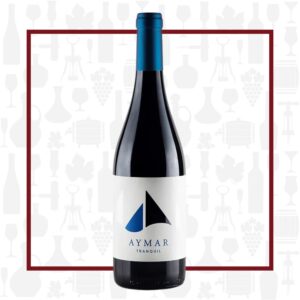Cellar Profile
Castell de Pujades is a family-run winery situated in the heart of the renowned Classic Penedès region of Catalonia. For six generations, the Ferrer family has been growing grapes indigenous to the region here: Macabeu, Xarel-lo, Parellada and the almost extinct Red Xarel-lo. Their focus is on crafting wines that have a sense of place and that showcase the terroir of the vineyard. To that end, they farm organically and work the land by hand. Classic Penedès is Cava country and the specialty of the winery. The vineyards are planted in calcareous rock, with patches of gravel and sand. Dry-farmed, the vines are protected from the hot, humid summers by the winds that come off the nearby Mediterranean. Evenings here are cool—at times barely above freezing during the growing season—due to the elevation and proximity to the ocean. This large diurnal shift allows for full ripening and development of flavour, while retaining the acidity necessary to make great Cava.
Region
Located southwest of the Spanish city of Barcelona, the Penedès wine appellation straddles two coastal provinces, Barcelona in the north and Tarragona further south. The Penedès vineyards are divided into three sub-regions, related to topography: low (maritime), central and high. The region stretches westward and inland from the Mediterranean Sea over undulations and hills known as the Catalan coastal depression, the coastal range and the pre-coastal mountains where vines thrive at up to 2,600 feet (800 meters) elevation. Mediterranean winters are generally mild, while summers are hot with average temperatures hovering in the 30°C range. The clay, sand and limestone soils below the grapes are generally dry and friable, conducive to letting vines penetrate deeply.
Vineyard
Organically farmed on calcareous stone. These higher altitude vineyards sit in some of the finest terroir of all Penedès. The soil being permeable allows the Spring and Fall rains to drain efficiently and to retain the stress on the vines from the hot summer growing season. Proximity to the ocean also moderates temperatures with cooler evenings and some stiff breezes.
Varieties
Cabernet Sauvignon is probably the most famous red wine grape variety on earth and has successfully spread to almost every wine growing country. DNA profiling carried out in California in 1997 confirmed that Cabernet Sauvignon is the product of a natural genetic crossing between key Bordeaux grape varieties Cabernet Franc and Sauvignon Blanc. There are two key reasons for Cabernet Sauvignon’s rise to dominance. The most simple and primordial of these is that its vines are highly adaptable to different soil types and climates; it is grown at latitudes as disparate as 50°N (Okanagan Valley, Canada) and 20°S (northern Argentina), and in soils as different as the gravels of Pessac-Leognan and the iron-rich terra rossa of Coonawarra. Secondary to this, but just as important, is that despite the diversity of terroirs in which the vine is grown, Cabernet Sauvignon wines retain an inimitable “Cab” character, nuanced with hints of provenance in the best-made examples. Cabernet Sauvignon wines always seem to demonstrate a handful of common character traits: deep color, good tannin structure, moderate acidity and aromas of blackcurrant, tomato leaf, dark spices and cedarwood.
Winemaking
Hand-harvested at phenolic ripeness, but before the grapes get too sugar heavy. Sorted and destemmed, the varieties are vinified separately in a sealed stainless steel tank, “INOX”. This is done to preserve freshness and primary fruit, with care given to avoid reductive notes. Bottled young and fresh,without oak.
Tasting Notes
Young and bright, with primary dark fruit notes springing from the glass. There is a touch of background herbaceousness, as well as floral notes on the nose, clearly indicating this a Cab-based blend. The palate is dominated by those dark fruits, with a touch of anise and red pepper. There is a good balance of acidity and supple tannins. An easy-drinking, quaffable wine that would pair well lightly chilled with roast pork or a good grilled burger.

 info@buyersandcellars.ca
www.buyersandcellars.ca
info@buyersandcellars.ca
www.buyersandcellars.ca